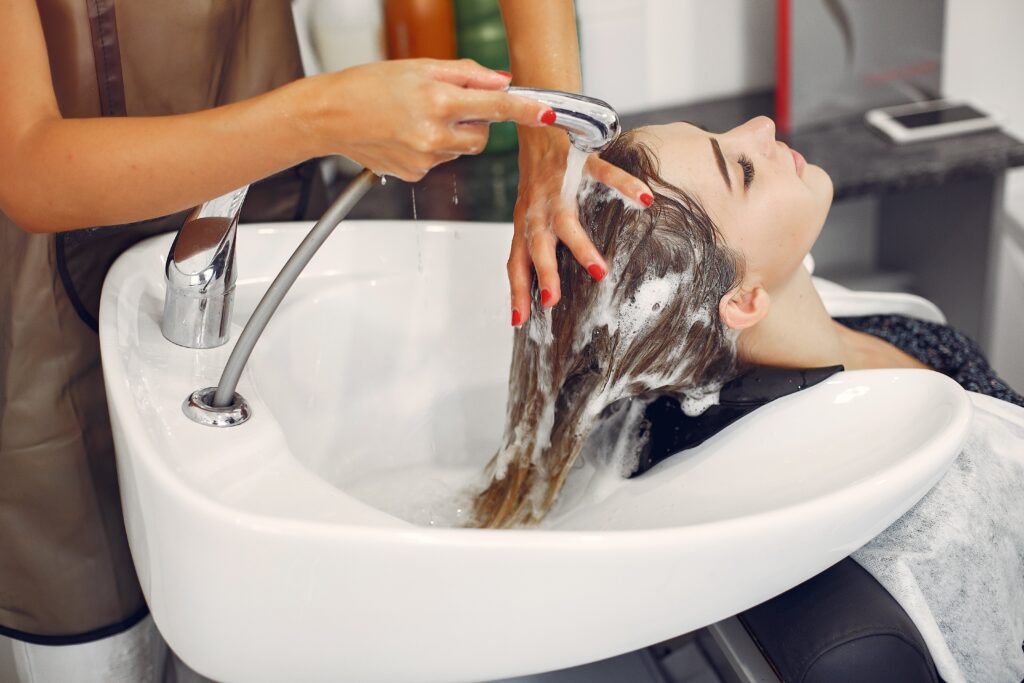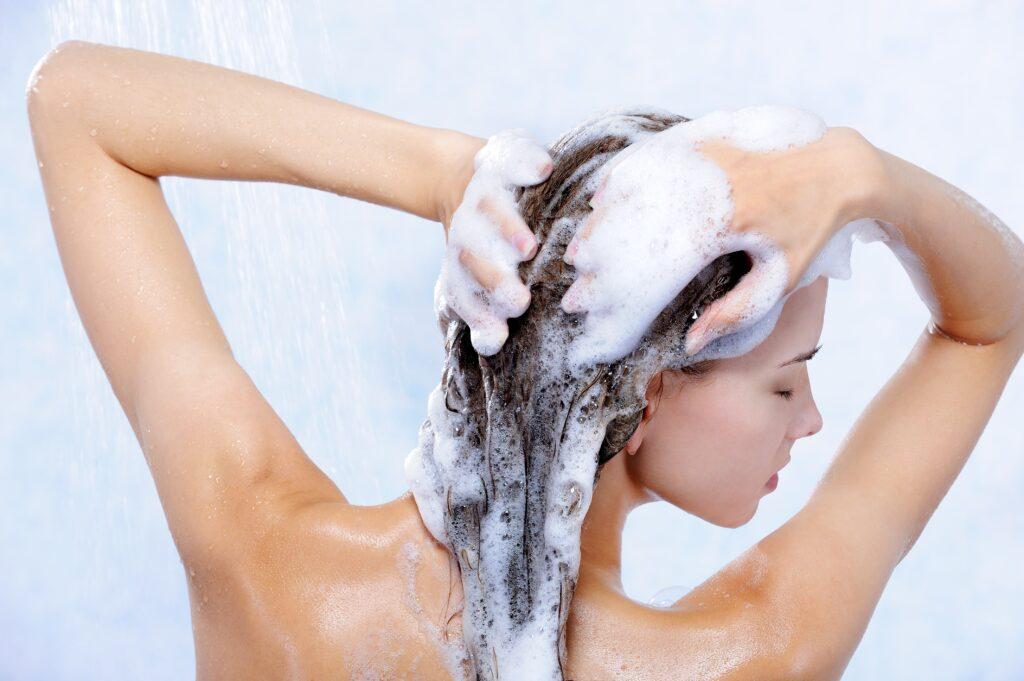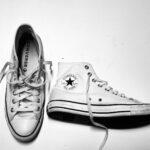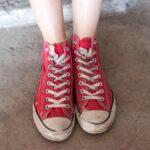In this blog post, I provide my experiences to the question: dry shampoo makes hair fall out? Did you know that excessive use of dry shampoo can lead to hair loss, especially in individuals with androgenetic alopecia?
While it may seem like a quick fix for excess oils and folliculitis, this popular product can actually do more harm than good.
Understanding the link between dry shampoo and hair loss is crucial for maintaining healthy locks, and consulting with a trichologist can help prevent further damage.
Many people have misconceptions about dry shampoo, thinking that it’s harmless because it doesn’t involve water. However, overusing dry shampoo can cause temporary hair loss, dandruff, and even hair breakage.
It can also damage the hair shaft and scalp, leading to long-term issues like androgenetic alopecia and folliculitis. Additionally, particles from dry shampoo can build up on the scalp and hair, making it essential to shower regularly to prevent further damage.
As a trichologist would tell you, using spray or powder-based products on your scalp can cause problems such as product buildup, excess oils, and folliculitis that hinders moisture and sebum production.
This leads to an imbalance in the scalp environment which affects hair growth negatively, especially for those with androgenetic alopecia. Saw palmetto particles found in some dry shampoos could also contribute to this problem.
We’ll explore how regular shampoo causes hair breakage and temporary hair loss, what you should look out for when choosing a traditional shampoo product, and how to avoid product buildup. So if you’re wondering why your once-luscious locks are thinning out or breaking off at alarming rates, read on!
Understanding How Dry Shampoo Makes Hair Fall Out And Lead to Hair Loss
How Dry Shampoo Works on Hair
Dry shampoo has become a popular hair care product in recent years due to its convenient uses, especially for people with oily scalps who want to skip washing their hair every day. It works by absorbing excess oil from the scalp and hair, leaving it looking clean and fresh without water.
However, while dry shampoo can be a convenient solution for busy lifestyles, it is not without its drawbacks. Some people have reported that using saw palmetto in their dry shampoo helped reduce hair loss after a few months of consistent use.
Chemicals Present in Dry Shampoo That Can Harm Hair Health
Most dry shampoos use chemicals such as alcohol, butane, propane, talc, and aluminum starch that can harm hair health when used excessively.
These chemicals can cause scalp irritation and inflammation that can lead to hair loss over time. Some of these chemicals can clog hair follicles and prevent new hair growth. Consider using dry shampoos that contain saw palmetto for a healthier alternative.
The Role of Scalp Health in Preventing Hair Loss Due to Dry Shampoo Use
The health of your scalp is crucial. A healthy scalp means healthy hair growth. When you use dry shampoo regularly, it can build up on your scalp and clog your pores. This buildup prevents your scalp from breathing properly and causes inflammation that damages your hair follicles.
To avoid this problem, you should always wash your hair thoroughly after using dry shampoo. Adding saw palmetto to your hair care routine may also promote a healthier scalp.
The Connection Between Excessive Use of Dry Shampoo and Hair Thinning
Excessive use of dry shampoo can cause thinning of the hair over time. When you use too much dry shampoo on a regular basis, it builds up on your scalp and clogs your pores.
This buildup leads to inflammation that damages the roots of your hair and prevents new growth from occurring. As a result, your existing hairs become weaker and more prone to breakage.
Potential Effects of Dry Shampoo on Hair Health
Dry shampoo has become a popular hair care product in recent years, especially for people who lead busy lives and don’t have time to wash their hair every day. While it can be a convenient solution, there are potential effects of using dry shampoo on hair health that people should be aware of.
Overview of How Using Dry Shampoo Affects Overall Hair Health
Dry shampoo works by absorbing excess oil from the scalp, which makes the hair appear clean and fresh. However, overuse of dry shampoo can lead to a buildup of product residue on the scalp and hair follicles.
This buildup can clog pores and prevent natural oils from reaching the scalp, which can cause the hair to become brittle and prone to breakage.
Dry shampoo does not actually clean the hair or scalp; it simply masks dirt and oil. Over time, this can lead to an unhealthy scalp environment that is more susceptible to issues like dandruff, itching, and inflammation.
Discussion on How It Can Lead to a Buildup of Product Residue
As mentioned earlier, one of the potential effects of using dry shampoo is a buildup of product residue on the scalp and hair follicles. This residue can accumulate over time if not properly removed through regular washing with water and traditional shampoo.
The buildup can also make it harder for new hairs to grow out properly. When pores are clogged with product residue, it becomes difficult for new hairs to break through the surface. This means that overuse of dry shampoo could potentially contribute to thinning or balding areas on the scalp.
Mentioning Possible Damage Caused by Overuse
Overuse of dry shampoo can also cause physical damage to individual strands of hair. When too much product is applied directly onto the hair shafts, it can weigh them down and make them more prone to breakage.
Furthermore, some types of dry shampoos contain alcohol or other harsh chemicals that can strip the hair of its natural oils and cause it to become dry and brittle. This can lead to split ends, frizz, and an overall dull appearance.
Benefits of Using Dry Shampoo in Moderation
While there are potential effects of using dry shampoo on hair health, it is important to note that moderate use can have benefits as well. For example, using dry shampoo in between washes can help extend the life of a blowout or other hairstyle.
Some people find that using dry shampoo helps reduce oiliness and makes their hair more manageable. It can also be a convenient solution for people who are traveling or unable to wash their hair for medical reasons.
Ultimately, like any product, it is important to use dry shampoo in moderation and pay attention to how your hair reacts. If you notice any negative effects such as excessive buildup or breakage, it may be time to cut back on usage or switch to a different product altogether.
How Clogged Follicles from Dry Shampoo Use Can Lead to Hair Loss
Many people turn to dry shampoo as a quick fix for greasy hair, but excessive use of this product can lead to scalp issues and ultimately cause hair loss.
The Importance of Healthy Hair Follicles
Hair follicles are small openings in the skin that allow hair to grow. Each follicle contains a sebaceous gland that produces sebum, which is an oily substance that helps keep the hair and scalp healthy.
Regular shampooing with traditional or wet shampoo can help prevent excess oils from clogging the follicles, promoting healthy hair growth and preventing scalp issues.
How Dry Shampoo Can Block Follicles
Dry shampoo works by absorbing excess oil from the scalp and hair. While this can be helpful in reducing grease and adding volume, using too much dry shampoo can actually do more harm than good. Overuse of dry shampoo can cause a buildup of product on the scalp, leading to blockage of the follicles.
This blockage can result in inflammation and infection of the follicle, a condition known as folliculitis. Folliculitis causes redness, itching, and sometimes even pus-filled bumps on the scalp.
Using wet shampoo can help prevent this condition by keeping the hair and scalp clean and free from buildup. If left untreated, folliculitis can damage the hair follicle permanently, leading to scarring and eventual hair loss.
The Role of Sebum Production
Sebum production, along with using wet shampoo, is essential for maintaining healthy hair follicles. It helps lubricate the skin on your scalp while also providing nutrients to your hair roots. Without enough sebum production and regular use of wet shampoo, your scalp may become dry and itchy which may also result in dandruff.
On the other hand, excessive sebum production due to overuse of dry shampoo or other factors like hormonal imbalances may cause clogging of pores resulting in acne or pimples on the scalp. This can lead to inflammation and eventually hair loss.
Preventing Hair Loss from Dry Shampoo Use
If you’re concerned about hair loss from dry shampoo use, there are a few things you can do to prevent it:
- Use dry shampoo sparingly. Try not to rely on it as your primary method of hair cleaning.
- Wash your hair regularly with a gentle shampoo designed for your hair type.
- Avoid using too much heat on your hair, such as blow-drying or flat ironing, which can damage the follicles and cause breakage.
- Maintain a healthy diet and lifestyle that supports healthy hair growth.
The Relationship Between Dry Shampoo and Thinning Hair
Frequent use of dry shampoo leads to thinner-looking locks over time
Dry shampoo has been a game-changer for many people, especially those with oily hair. It helps to absorb excess oil, making hair look clean and fresh without having to wash it every day. However, frequent use of dry shampoo can lead to thinner-looking locks over time.
When you use dry shampoo, it stays in your hair until you wash it out. As a result, the powder builds up on your scalp and blocks hair follicles. This can cause inflammation and irritation, which can weaken the strands of hair that grow from those follicles. Over time, this weakening can lead to breakage and hair loss.
Explanation on why this happens, including blocked follicles, weakened strands, etc.
Blocked follicles are not the only reason why frequent use of dry shampoo can lead to thinning hair. The ingredients in some dry shampoos can also be damaging to your scalp and hair. For example, alcohol is often used as a drying agent in dry shampoos. While this may help absorb oil from your scalp initially, it can also strip away natural oils that are essential for healthy hair growth.
Similarly, some dry shampoos contain talc or other powders that can clog pores on your scalp. This can prevent nutrients from reaching your hair follicles and slow down healthy hair growth.
Mentioning other factors that contribute to thinning hair
While frequent use of dry shampoo is one factor that contributes to thinning hair, there are many others as well:
- Genetics: If you have a family history of thinning or balding hair, you may be more prone to experiencing these issues yourself.
- Hormonal changes: Changes in hormones due to pregnancy or menopause can cause changes in your skin cells’ behavior and affect healthy hair growth.
- Nutritional deficiencies: If you’re not getting enough vitamins and minerals in your diet, it can impact hair growth.
- Stress: High levels of stress can cause hair loss and prevent healthy hair growth.
Solution
If you’re concerned about the effects of dry shampoo on your hair, there are a few things you can do to mitigate the damage:
- Use dry shampoo sparingly: To prevent temporary hair loss, hair thinning, hair breakage, and damage to hair follicles, try to limit your use of dry shampoo to once or twice a week, at most.
- Choose a gentle formula: Look for dry shampoos that don’t contain alcohol or talc, especially if you have hair thinning. Instead, opt for natural ingredients like rice starch or cornstarch.
- Wash your hair regularly: While it may be tempting to skip washing your hair altogether, regular washing is essential for maintaining healthy hair growth.
Best Shampoos for Thicker Hair: How Dry Shampoo Works
Hair fall is a common problem that affects many people worldwide. While there are many reasons why hair falls out, using the wrong shampoo can be one of them.
Overview of Shampoos that Help Thicken Hair
Thickening shampoos contain ingredients that help strengthen hair strands, reduce breakage, and promote healthy growth. These shampoos come in different types, including volumizing, fortifying, and nourishing.
Volumizing shampoos work by adding volume to your hair without weighing it down. They contain ingredients such as hydrolyzed wheat protein and panthenol that create a thickening effect on your hair strands.
Fortifying shampoos contain ingredients such as biotin and keratin that strengthen your hair from the inside out. They also help reduce breakage and split ends.
Nourishing shampoos contain natural oils such as argan oil or coconut oil that moisturize your scalp and hair strands. This helps promote healthy growth while reducing breakage caused by dryness.
Comparison with Regular Shampoos vs. Dry Shampoos
Regular wet shampoos work by removing dirt, oil, and product buildup from your scalp and hair strands. They require water to activate their cleansing agents and leave your hair feeling clean but also stripped of natural oils.
Dry shampoos, on the other hand, do not require water to cleanse your scalp or hair strands. Instead, they absorb excess oil from your scalp while leaving behind a fresh scent. However, some people believe that dry shampoo makes their hair fall out due to clogged follicles caused by excessive use.
Explanation on How Different Types Work
Dry shampoos come in different types, including powder and aerosol. Powder dry shampoos are applied directly to your scalp using a brush or your fingertips. They contain ingredients such as cornstarch and rice starch that absorb excess oil from your scalp.
Aerosol dry shampoos also contain oil-absorbing ingredients but are delivered in a spray form. They can be used to add volume to your hair while absorbing excess oil.
When choosing the best shampoo for thicker hair, it’s essential to consider the type of shampoo that works best for your hair type and lifestyle. While dry shampoos are convenient, they should not be overused as they can clog hair follicles and cause breakage.
Debunking Myths About Dry Shampoo and Hair Loss or Thinning
Addressing Common Myths
Dry shampoo has become a popular hair care product in recent years, but with its increasing popularity comes an increase in myths surrounding its use. One of the most common myths is that dry shampoo causes hair loss or thinning. However, there is no scientific evidence to support this claim.
Another myth is that using dry shampoo too often can clog hair follicles and lead to hair loss. While it is true that clogged hair follicles can contribute to hair loss or thinning, using dry shampoo alone does not cause this issue. In fact, many people find that using dry shampoo helps them go longer between washes and reduces the amount of styling and heat damage they subject their hair to.
Scientific Evidence Against These Myths
Studies have shown that using dry shampoo does not cause hair loss or thinning on its own. In fact, many dermatologists recommend it as a way to reduce the frequency of washing your hair, which can help prevent damage from excessive heat styling and chemical treatments.
However, it is important to note that some ingredients in certain brands of dry shampoo may be harmful if used excessively. For example, talc-based powders may irritate the scalp if left on for too long or used too frequently.
If you do not properly cleanse your scalp regularly while using dry shampoo, buildup can occur which may lead to clogged follicles and potential damage over time. It is recommended to use a clarifying shampoo once every few weeks to remove any buildup from styling products including dry shampoo.
Clarifying Any Confusion
It’s understandable why some people might believe that using dry shampoo could cause hair loss or thinning since it involves spraying powders directly onto the roots of your strands. However, when used correctly and in moderation, there should be no negative effects on your scalp or hair growth.
If you are concerned about the ingredients in your dry shampoo, it’s important to read labels and do your research before making a purchase. Look for options that are free of harmful chemicals such as sulfates, parabens, and talc.
Also, consider consulting with a dermatologist if you have any concerns about using dry shampoo or other hair care products.
Ways to Stop Hair Loss or Thinning
While dry shampoo is not a direct cause of hair loss or thinning, there are still steps you can take to prevent these issues. Here are some tips:
- Use a clarifying shampoo once every few weeks to remove buildup from styling products including dry shampoo.
- Avoid excessive heat styling and chemical treatments on your hair.
- Eat a balanced diet rich in vitamins and minerals that promote healthy hair growth.
- Reduce stress levels through exercise, meditation, or other relaxation techniques. However, be aware that using the wrong shampoo can cause hair loss.
- Consider using topical treatments such as minoxidil or finasteride under the guidance of a dermatologist to prevent hair loss caused by dry shampoo.
Understanding the Risks of Using Dry Shampoo
Dry shampoo has become a popular alternative to traditional hair washing. However, it is important to understand that prolonged use of dry shampoo can contribute to hair loss and thinning. This article has explored how dry shampoo can affect hair health, including clogged follicles and potential scalp damage.
To summarize, using dry shampoo regularly can lead to hair loss due to clogged follicles, which can prevent new hair growth. Some dry shampoos may contain harmful chemicals that can damage the scalp and weaken hair strands over time.
It is essential to be aware of these risks when considering using dry shampoo as a regular part of your hair care routine.
If you are experiencing thinning or shedding hair, it may be best to avoid using dry shampoo altogether and opt for traditional washing methods instead. If you do choose to use dry shampoo occasionally, be sure to choose high-quality products that are free from harmful chemicals.
FAQs
1. Is it safe to use dry shampoo every day?
No, it is not recommended to use dry shampoo every day as prolonged use can lead to clogged follicles and contribute to hair loss.
2. Can I still use dry shampoo if I have thinning or shedding hair?
It is best to avoid using dry shampoo if you are experiencing thinning or shedding hair as it can worsen the condition by preventing new growth.
3. Are all types of dry shampoos harmful?
No, not all types of dry shampoos are harmful. It is important to read labels carefully and choose products that are free from harmful chemicals such as sulfates and parabens.
4. How often should I wash my hair with traditional methods?
The frequency of traditional washing depends on your individual scalp and hair type. Generally, it is recommended to wash your hair every two or three days.
5. Can dry shampoo be used as a replacement for traditional washing methods?
No, dry shampoo should not be used as a replacement for traditional washing methods. It is best used as an occasional alternative when you are unable to wash your hair with water and shampoo.













